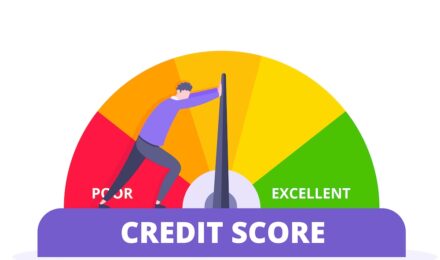When applying for an online personal loan, your credit score often determines whether you’re approved and what terms you receive. Lenders use this three-digit number as a snapshot of your financial reliability. A high score signals lower risk, which usually means lower interest rates and better loan offers. A low score, by contrast, may lead to higher borrowing costs—or outright denial.
Online lenders rely heavily on credit scores because applications are processed quickly, sometimes with little personal interaction. Your score helps them make an instant judgment about your creditworthiness. Understanding what score you need before applying prevents surprises and helps you focus on lenders that match your profile.
Typical Credit Score Ranges
Most lenders use the FICO scoring model, which ranges from 300 to 850. The ranges break down roughly like this:
- Poor: 300–579
- Fair: 580–669
- Good: 670–739
- Very Good: 740–799
- Excellent: 800–850
While some lenders accept borrowers with fair or even poor credit, most prefer applicants in the good-to-excellent range. The higher your score, the better your chances of securing an affordable loan.
Minimum Scores for Online Lenders
There’s no single cutoff across all lenders. Many fintech platforms set their minimum requirement around 600, while others cater to borrowers with scores as low as 560. Prime lenders, however, typically look for scores of 670 and above.
Some lenders offer “bad credit loans,” but these often come with steep APRs, shorter repayment terms, or smaller loan amounts. For example, a borrower with a score of 580 may qualify for $5,000 at 28% APR, while someone with a 740 score could receive $15,000 at 9% APR.
Beyond the Score: Other Factors
While your credit score is central, it isn’t the only factor lenders consider. Income, employment history, and debt-to-income ratio all play a role. Some lenders use alternative data—such as rent payments or utility bills—to get a fuller picture of your financial habits.
This means that even if your score isn’t stellar, you might still qualify if you demonstrate steady income and manageable existing debt. Conversely, a strong score won’t guarantee approval if your income is unstable or your debt load is too heavy.
Soft vs. Hard Credit Checks
Most online lenders offer prequalification tools that perform a soft credit check. This lets you preview potential rates and terms without hurting your score. Only when you submit a full application does the lender perform a hard inquiry, which may lower your score slightly.
Taking advantage of prequalification helps you target the right lenders and avoid unnecessary rejections. It’s one of the smartest steps you can take before committing to a loan application.
Improving Your Odds of Approval
If your score is lower than you’d like, it may be worth taking a few months to improve it before applying. Simple steps such as paying down credit card balances, disputing errors on your report, and avoiding new debt can push your score upward. Even a 20- to 30-point improvement can make a noticeable difference in the offers you receive.
Timing matters too. Applying after reducing your debt or boosting your credit score can mean access to thousands more in funding at far better rates.
What Happens if You Apply With Low Credit?
Applying with a low score doesn’t always mean rejection. Some lenders specialize in subprime borrowers. However, these loans can be costly. APRs may exceed 30%, repayment terms may be short, and fees can be significant. While these loans provide quick access to funds, they should be approached with caution.
If possible, explore alternatives such as credit unions, secured loans, or co-signed loans. These often offer better terms for borrowers who don’t meet the prime thresholds.
Final Thoughts
There’s no universal credit score that guarantees approval for an online personal loan, but most lenders favor applicants with scores of 670 or higher. That said, your score is just one part of the equation. Income stability, debt levels, and lender requirements all matter.
For borrowers, the best strategy is to know your score, shop around with prequalification tools, and take steps to strengthen your profile before applying. With preparation, even those outside the prime range can find opportunities that fit their needs.
References
- FICO. “What is a Good Credit Score?” https://www.myfico.com
- Experian. “Minimum Credit Score for a Personal Loan.” https://www.experian.com
- NerdWallet. “What Credit Score Do You Need for a Personal Loan?” https://www.nerdwallet.com
When applying for an online personal loan, your credit score often determines whether you’re approved and what terms you receive. Lenders use this three-digit number as a snapshot of your financial reliability. A high score signals lower risk, which usually means lower interest rates and better loan offers. A low score, by contrast, may lead to higher borrowing costs—or outright denial.
Online lenders rely heavily on credit scores because applications are processed quickly, sometimes with little personal interaction. Your score helps them make an instant judgment about your creditworthiness. Understanding what score you need before applying prevents surprises and helps you focus on lenders that match your profile.
Typical Credit Score Ranges
Most lenders use the FICO scoring model, which ranges from 300 to 850. The ranges break down roughly like this:
- Poor: 300–579
- Fair: 580–669
- Good: 670–739
- Very Good: 740–799
- Excellent: 800–850
While some lenders accept borrowers with fair or even poor credit, most prefer applicants in the good-to-excellent range. The higher your score, the better your chances of securing an affordable loan.
Minimum Scores for Online Lenders
There’s no single cutoff across all lenders. Many fintech platforms set their minimum requirement around 600, while others cater to borrowers with scores as low as 560. Prime lenders, however, typically look for scores of 670 and above.
Some lenders offer “bad credit loans,” but these often come with steep APRs, shorter repayment terms, or smaller loan amounts. For example, a borrower with a score of 580 may qualify for $5,000 at 28% APR, while someone with a 740 score could receive $15,000 at 9% APR.
Beyond the Score: Other Factors
While your credit score is central, it isn’t the only factor lenders consider. Income, employment history, and debt-to-income ratio all play a role. Some lenders use alternative data—such as rent payments or utility bills—to get a fuller picture of your financial habits.
This means that even if your score isn’t stellar, you might still qualify if you demonstrate steady income and manageable existing debt. Conversely, a strong score won’t guarantee approval if your income is unstable or your debt load is too heavy.
Soft vs. Hard Credit Checks
Most online lenders offer prequalification tools that perform a soft credit check. This lets you preview potential rates and terms without hurting your score. Only when you submit a full application does the lender perform a hard inquiry, which may lower your score slightly.
Taking advantage of prequalification helps you target the right lenders and avoid unnecessary rejections. It’s one of the smartest steps you can take before committing to a loan application.
Improving Your Odds of Approval
If your score is lower than you’d like, it may be worth taking a few months to improve it before applying. Simple steps such as paying down credit card balances, disputing errors on your report, and avoiding new debt can push your score upward. Even a 20- to 30-point improvement can make a noticeable difference in the offers you receive.
Timing matters too. Applying after reducing your debt or boosting your credit score can mean access to thousands more in funding at far better rates.
What Happens if You Apply With Low Credit?
Applying with a low score doesn’t always mean rejection. Some lenders specialize in subprime borrowers. However, these loans can be costly. APRs may exceed 30%, repayment terms may be short, and fees can be significant. While these loans provide quick access to funds, they should be approached with caution.
If possible, explore alternatives such as credit unions, secured loans, or co-signed loans. These often offer better terms for borrowers who don’t meet the prime thresholds.
Final Thoughts
There’s no universal credit score that guarantees approval for an online personal loan, but most lenders favor applicants with scores of 670 or higher. That said, your score is just one part of the equation. Income stability, debt levels, and lender requirements all matter.
For borrowers, the best strategy is to know your score, shop around with prequalification tools, and take steps to strengthen your profile before applying. With preparation, even those outside the prime range can find opportunities that fit their needs.
References
- FICO. “What is a Good Credit Score?” https://www.myfico.com
- Experian. “Minimum Credit Score for a Personal Loan.” https://www.experian.com
- NerdWallet. “What Credit Score Do You Need for a Personal Loan?” https://www.nerdwallet.com







